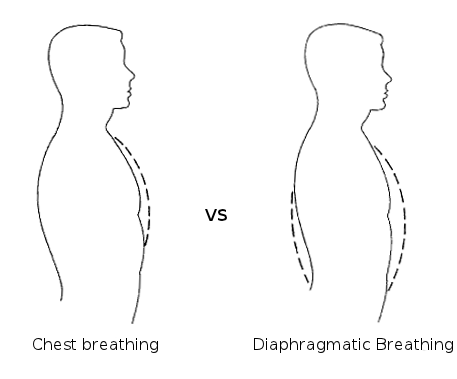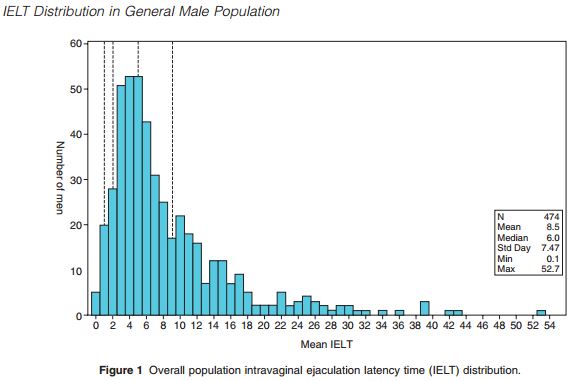Premature Ejaculation Meaning
Premature ejaculation (PE) is a sexual dysfunction that can be both frustrating and embarrassing for those who experience it. It’s estimated that up to 30% of men will struggle with PE at some point in their lives, yet it remains a topic that is often shrouded in secrecy and misunderstanding for many guys.
So, let’s shed some light on the subject and take a closer look at what exactly premature ejaculation is. But be warned, defining PE or finding a universal aggress of premature ejaculation meaning can be a bit of a slippery slope. Different sources have different criteria for what qualifies as premature ejaculation, so it’s important to consider multiple definitions when trying to understand this topic.
With that said, here are three definitions of premature ejaculation that you might come across:
#1: The International Society of Sexual Medicine (ISSM) Definition
According to the ISSM, premature ejaculation is defined as “ejaculation that occurs before or shortly after vaginal penetration, with minimal sexual stimulation, and is accompanied by feelings of distress or anxiety.”
In other words, if you’re finishing too soon and it’s causing you stress or anxiety, that’s premature ejaculation according to the ISSM. It’s worth noting that the ISSM’s definition is focused on the subjective experience of the person with PE. If you feel like you’re ejaculating too soon and it’s causing you distress, then you meet the criteria for PE under this definition.
#2: The Diagnostic and Statistical Manual of Mental Disorders (DSM-5) Definition
The DSM-5, which is published by the American Psychiatric Association, defines premature ejaculation as “persistent or recurrent ejaculation with minimal sexual stimulation before, on, or shortly after penetration and before the person wishes it.”
This definition emphasizes the objective aspect of PE, focusing on the timing of ejaculation rather than the individual’s subjective experience. Under this definition, if you’re consistently ejaculating before you or your partner are ready, that’s premature ejaculation.
#3: The 30-Second Definition
Some researchers have defined premature ejaculation as ejaculation that occurs within 30 seconds of the start of sexual activity. So, if you’re finishing faster than Usain Bolt running the 100-meter dash, you might be experiencing PE according to this premature ejaculation meaning.
This definition is arguably the most straightforward and objective of the three, as it doesn’t take into account the individual’s subjective experience or the presence of distress. It simply focuses on the timing of ejaculation.
It’s important to note that these definitions are not necessarily mutually exclusive and may overlap to some extent. However, they do highlight the different ways that premature ejaculation can be defined and understood.
So, what causes premature ejaculation?
Unfortunately, there isn’t a straightforward answer to the question of what causes premature ejaculation. Premature ejaculation can have both physical and psychological causes, and it’s often a combination of the two. Factors that may contribute to premature ejaculation include:
- Lack of ejaculatory control skills
- Performance anxiety
- Stress
- Depression
- Certain medications
- Abnormal levels of hormones
- Abnormal reflex activity of the ejaculatory system
- Certain medical conditions (e.g. prostate inflammation)
It’s also worth noting that some men may have naturally shorter ejaculatory latencies (the time between the start of sexual activity and ejaculation). This is completely normal and doesn’t necessarily indicate a problem.
How is premature ejaculation treated?
If you think you might be experiencing premature ejaculation, there are plenty of things you can do. First up I’d advise you to read my detailed step-by-step guide on how to last longer in bed, which will get you started.
Here are some more common premature ejaculation treatments.
- Behavioral techniques: These can include things like the “stop-start” technique and the “squeeze” technique, which involve interrupting sexual activity before ejaculation and then restarting once the urge to ejaculate subsides. These techniques can help men learn to control their ejaculatory reflexes and last longer during sex.
- Medications: There are several medications that are used to treat premature ejaculation, including selective serotonin reuptake inhibitors (SSRIs) and topical anesthetics. SSRIs work by inhibiting the reuptake of serotonin, a chemical messenger in the brain that plays a role in ejaculatory control. Topical anesthetics can help reduce sensitivity and delay ejaculation.
- Combination therapy: Some men may benefit from a combination of behavioral techniques and medication. This approach can be particularly effective for men who have both physical and psychological causes of premature ejaculation.
It’s important to note that treatment for premature ejaculation often requires time and patience. It’s not uncommon for men to feel frustrated or discouraged when trying to address this issue. However, with the right treatment approach and the support of a healthcare provider, most men can significantly improve their ejaculatory control and sexual satisfaction.
Premature ejaculation is a common and treatable sexual dysfunction that can be defined in a few different ways. If you think you might be experiencing premature ejaculation, don’t be afraid to seek help. Remember, you’re not alone and there are treatment options available. With the right approach, you can improve your ejaculatory control and enhance your sexual satisfaction.





